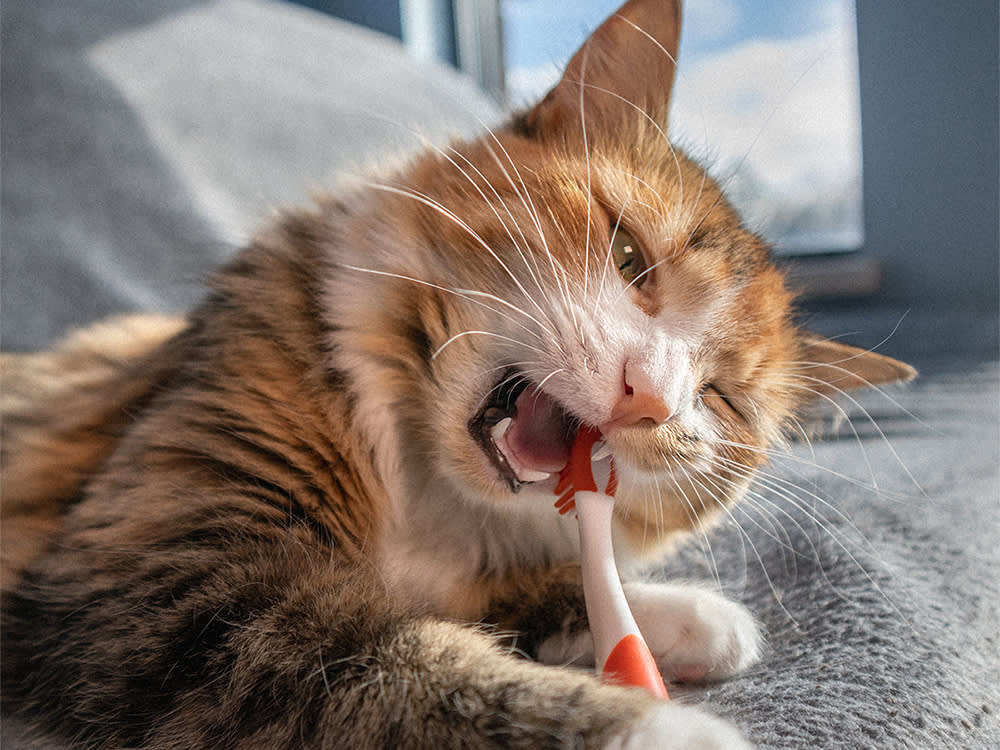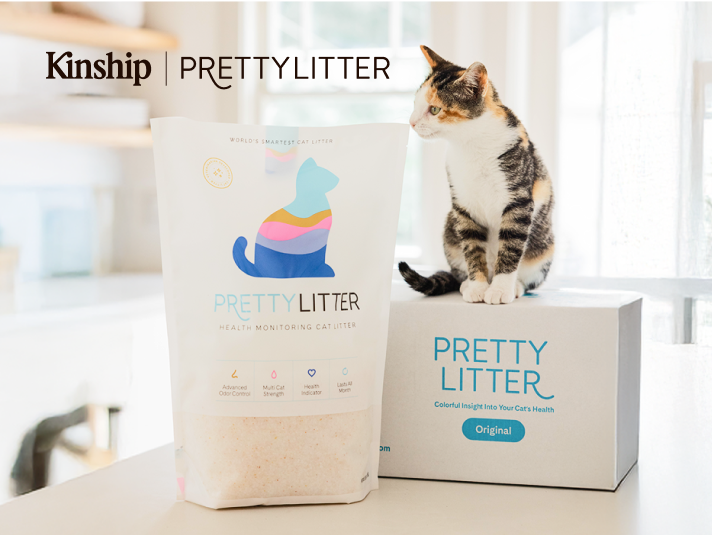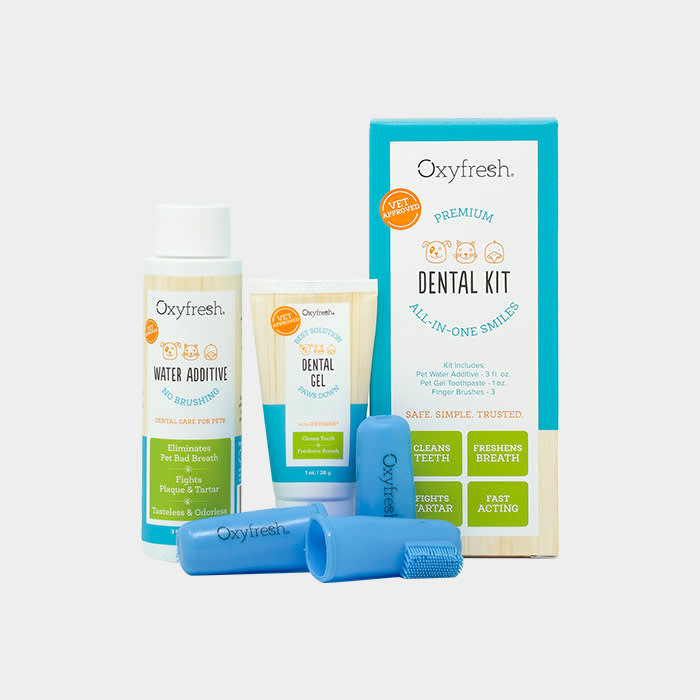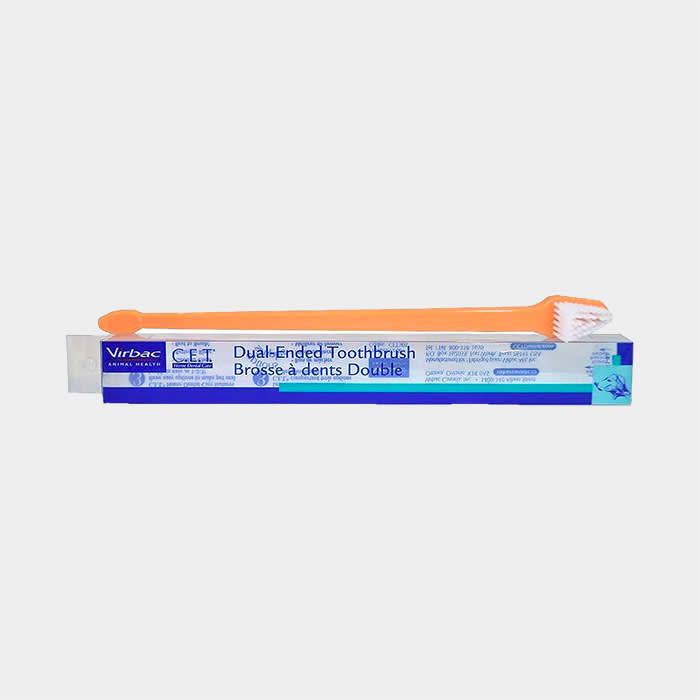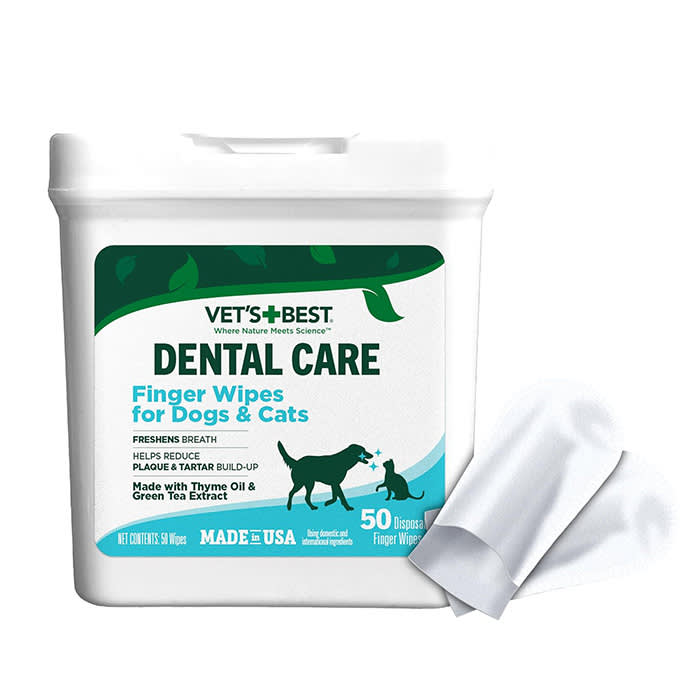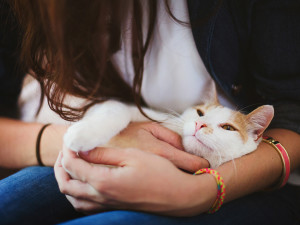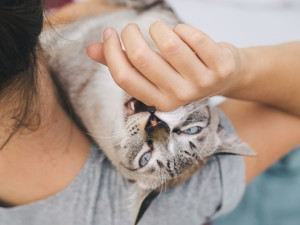7 Cat Dental Products You Never Knew You Needed
Vets explain how fish-flavored toothpastes and nifty finger brushes can prevent more than “tooth fur.”
Imagine how gross your mouth feels if you skip brushing your teeth just once (the disturbing phrase “tooth fur” comes to mind). So why do so many cat parents consider dental care optional? Um, maybe because my cat would never let me brush their teeth, you may be thinking.
Sure, we never said it would be easy, but unfortunately it is a pretty essential part of their pet care — so better get yourself some cat toothpaste and a veterinarian-approved toothbrush and get to work.
Save on the litter with color-changing tech that helps you better care for your cat.
Why you should brush your cat’s teeth
“Cats are very prone to gingivitis and periodontitis, which can be caused by a build-up of plaque and tartar and a sensitivity to the bacteria that grows on it,” says Dr. Lori M. Teller, a veterinarian and professor at Texas A&M University’s College of Veterinary Medicine and Biomedical Sciences. “This can lead to bad breath, inflamed and swollen gums, oral pain, pawing at the mouth, and tooth loss.” It can even lead to heart and kidney issues because bacteria can travel from blood vessels in your cat’s mouth to organs.
Dr. Karen Hayworth, a veterinarian at VCA Northview Animal Hospital, recommends brushing your cat’s teeth daily. Which is a tall order and — let’s be honest — probably not feasible for busy pet parents. If you aim for three times a week, and supplement with dental treats and professional cleanings at the vet’s office, it will do a lot for your cat’s health. “It’s well established that good oral hygiene is associated with good health,” Dr. Hayworth says. “And we want pets to be as comfortable as possible as they get older.”
How to brush your cat’s teeth
If you have a kitten, great. “It’s going to be easier to normalize this activity with them,” Dr. Teller says. But you still can make some progress with an older cat — just harness some patience and practice over a period of a few weeks. Start with a professional dental performed by your vet under anesthesia, then wait a couple of weeks before attempting any upkeep.
“It’s important to use a super-soft toothbrush — either designed for cats or infants,” Dr. Teller adds. “But pick up an enzymatic toothpaste that’s made for animals rather than a human toothpaste, which has foaming agents that will harm a cat if they swallow it (which you can count on).” Some cats straight-up won’t tolerate brushing, and for them, products like rinses, wipes, gels, and dental chews can be used in between professional cleanings.
But nothing beats brushing, Dr. Teller says: “While these are reasonable alternatives, nothing will be as effective as brushing your cat’s teeth on a daily basis.” Ready to level up your cat’s oral health? Below, the best products on the market. (For a longer list of recommendations, visit the Veterinary Oral Health Councilopens in new tab.)
The best cat dental products
Btw, our editors (and their pets) picked out these products. They’re always in stock at the time we publish, but there’s a chance they’ll sell out. If you do buy through our links, we may earn a commission. (We’ve got a lot of toys to buy over here, you know?)
